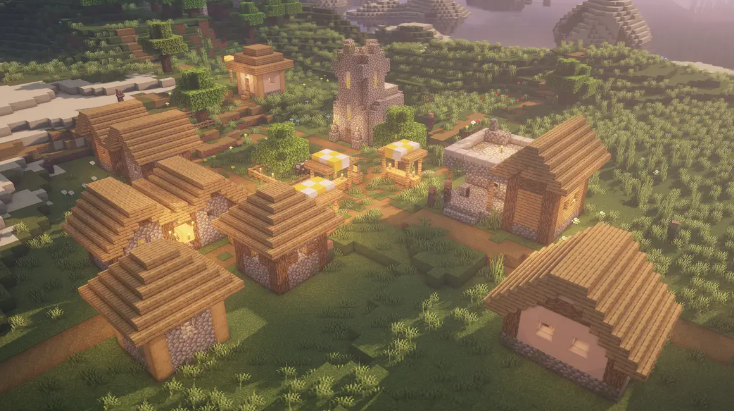Masqlaseen: A Journey Through Time

Masqlaseen is a small village located in the northern region of Lebanon, known for its rich history and cultural heritage. It is situated in the Batroun District, about 75 kilometers away from the capital city of Beirut.
The name “Masqlaseen” has roots in the ancient Aramaic language and translates to “Two Sieves.” This name is believed to have been given to the village due to its unique geographical location between two mountains, providing a natural protection against potential invaders.
The history of Masqlaseen dates back centuries ago, with evidence of human settlement found as early as the Bronze Age. The village played a significant role during various civilizations, including Phoenician, Roman, Byzantine, and Ottoman eras.
One of the main attractions that draw visitors to Masqlaseen is the historic ruins scattered throughout the area. These ruins represent different periods of time and reflect the diverse cultural influences on this small village. The most prominent ruin in Masqlaseen is the Byzantine Moon Temple, which stands tall on top of a hill overlooking the village. This temple was dedicated to Artemis, goddess of hunting and protector of nature.
Apart from its historical significance, Masqlaseen also boasts breathtaking natural beauty. Surrounded by lush greenery and stunning landscapes, it offers visitors a peaceful escape from bustling cities. The village sits at an altitude of 800 meters above sea level, allowing for cooler temperatures throughout most parts of the year.
The Origins of Masqlaseen
The origins of Masqlaseen date back to ancient Mesopotamian civilizations, specifically the Sumerians and Akkadians. The word “Masqlaseen” is derived from the Sumerian term “mas”, meaning “darkness” or “shadow”, and the Akkadian word “qalas”, which means “to wander”. This combination reflects the mysterious and elusive nature of this ancient tribe.
According to historical records, the Masqlaseen were a nomadic tribe that roamed the regions of Mesopotamia, encompassing modern-day Iraq, Syria, and parts of Turkey. They were known for their mastery in herbalism, divination, and spiritual practices. They were said to possess deep knowledge about the natural world and had a unique connection with nature.
One theory suggests that the Masqlaseen emerged from a group of Sumerians who rejected city life and retreated into rural areas to live close to nature. Another belief suggests that they were an amalgamation of various tribes who came together under one name due to shared cultural beliefs and practices.
The exact timeline of when the Masqlaseen originated is debated among historians, but it is believed that they thrived during 3000 BCE up until 200 BCE. During this time period, they developed their own distinct culture and customs while living in harmony with nature.
The Role of Masqlaseen in Preserving History
Masqlaseen, also known as the “keepers of history,” play a crucial role in preserving history for future generations. Their role goes beyond simply recording events and dates; they are responsible for ensuring that the stories, traditions and cultural heritage of their people continue to thrive.
Since ancient times, Masqlaseen have been an integral part of communities across the world. From oral traditions to written records, they have been entrusted with safeguarding historical knowledge through various mediums. In many cultures and societies, these individuals were highly respected and revered for their knowledge and expertise in preserving history.
One of the primary roles of Masqlaseen is to collect and document significant events that have shaped our world. They often act as historians, meticulously researching past events and curating them into detailed accounts. These historical records provide a glimpse into the past and allow us to understand how society has evolved over time.
Moreover, Masqlaseen serve as custodians of cultural heritage. They are responsible for transmitting traditional practices, rituals, stories, music, dance forms and other elements that make up a culture’s identity. This ensures that these aspects are not lost or forgotten over time.
In some cases, Masqlaseen take on the role of archivists. They work tirelessly to preserve documents, artifacts and other historical objects that hold significant value. These items offer a tangible link to our past and help us better understand our roots.
Exploring the Treasures of Masqlaseen
Located in the heart of the Middle East, Masqlaseen is a hidden gem that holds within it a rich history and culture waiting to be explored. From ancient ruins to bustling markets and breathtaking landscapes, this small country has much to offer for those who are willing to delve deep into its treasures.
One of the most enchanting aspects of Masqlaseen is its historical sites. The country’s strategic location between two major civilizations, Egypt and Mesopotamia, has resulted in a fusion of cultures over the centuries. This can be seen in the diversity of architectural styles found in the ruins scattered throughout the country.
One must-visit location is the ancient city of Qartaba, located on a hill overlooking the Mediterranean Sea. This well-preserved city was once a Phoenician settlement and later became an important Roman port. Walking through its streets feels like taking a step back in time, with magnificent structures such as an amphitheater and aqueducts still standing tall after thousands of years.
Another fascinating historical site is Al-Kharquake Castle, perched atop a steep cliff overlooking a scenic valley. Built during the Crusades by Arab conquerors, this castle has played significant roles throughout history as it changed hands between different rulers. Today, visitors can climb up winding staircases and explore rooms filled with artifacts from different eras.
Significant Artifacts
Masqlaseen, a small town nestled in the mountains of Northern Africa, holds a rich and ancient history that is waiting to be discovered. As you wander through the winding streets and bustling markets of this charming town, you will come across many significant artifacts that serve as a window into its past.
One of the most prominent artifacts in Masqlaseen is the Great Mosque, which stands tall at the heart of the town center. Built in the 8th century, this beautiful mosque showcases unique architecture with intricate geometric patterns adorning its walls and domes. Its grandeur is further amplified by a towering minaret that rises above the town’s skyline. The Great Mosque not only serves as a place of worship for local Muslims but also draws thousands of visitors every year who are fascinated by its historic significance.
As you explore Masqlaseen’s narrow alleyways, you will stumble upon an ancient market known as Souk Al-Tijara. This bustling bazaar has been operating for centuries and continues to thrive today. Here, you can find traders selling traditional goods such as spices, fabrics, pottery, and handmade jewelry – all crafted using age-old techniques passed down through generations. Walking through Souk Al-Tijara is like taking a step back in time, giving visitors a glimpse into what daily life was like for people in Masqlaseen centuries ago.
Uncovering Mysteries and Myths
The ancient civilization of Masqlaseen has long been shrouded in mystery and myth, with many conflicting stories and legends surrounding its existence. In this section, we will delve deeper into the fascinating mysteries and myths surrounding Masqlaseen and attempt to uncover the truth behind them.
One of the most intriguing mysteries surrounding Masqlaseen is its exact location. While historians believe that it was situated somewhere in what is now modern-day North Africa or the Middle East, there is no concrete evidence to pinpoint its exact whereabouts. Some theories suggest that it could have been located near present-day Egypt or Sudan, while others propose that it may have been further east in countries such as Iraq or Iran.
Another baffling mystery about Masqlaseen is the sudden disappearance of the civilization. Despite being a powerful and advanced society, it seemingly vanished without a trace around 300 BCE. There are numerous theories about what could have caused their downfall – from natural disasters to war – but no one knows for sure what ultimately led to their demise.
One popular myth surrounding Masqlaseen is that they possessed incredibly advanced technology far beyond their time. According to some tales, they had flying machines and weapons that could shoot beams of light. While there is little evidence to support these claims, some believe that remnants of this technology may still be hidden within undiscovered ruins of Masqlaseen.
Why Masqlaseen is a Must-Visit Destination for History Enthusiasts.
Masqlaseen is a hidden gem for history enthusiasts, offering a unique and authentic experience that transports you back in time. This historic city located in the country of Alataro is a must-visit destination for those who have a deep love for ancient civilizations and their cultures.
The city of Masqlaseen boasts a rich and diverse history, with evidence of human settlement dating back to at least 5000 BC. Its strategic location along the Silk Road made it an important trade route between Asia and Europe, resulting in a melting pot of cultures and influences throughout the centuries.
One cannot talk about Masqlaseen without mentioning its well-preserved archaeological sites. The city is home to several ancient ruins, temples, tombs, and palaces that offer a fascinating glimpse into the past. One such site is the Great Palace Complex, which dates back to the 2nd century BC and served as the residence of local rulers. It features impressive architectural designs and intricate details that showcase the advanced engineering skills of its time.
Another must-see attraction for history enthusiasts is the Royal Tombs of Masqlaseen. These grandiose underground burial chambers were carved out of solid rock during the reign of King Tarek II in 100 AD. The tombs are adorned with elaborate carvings and contain artifacts that give insight into the beliefs and customs of ancient Masqlasians.




